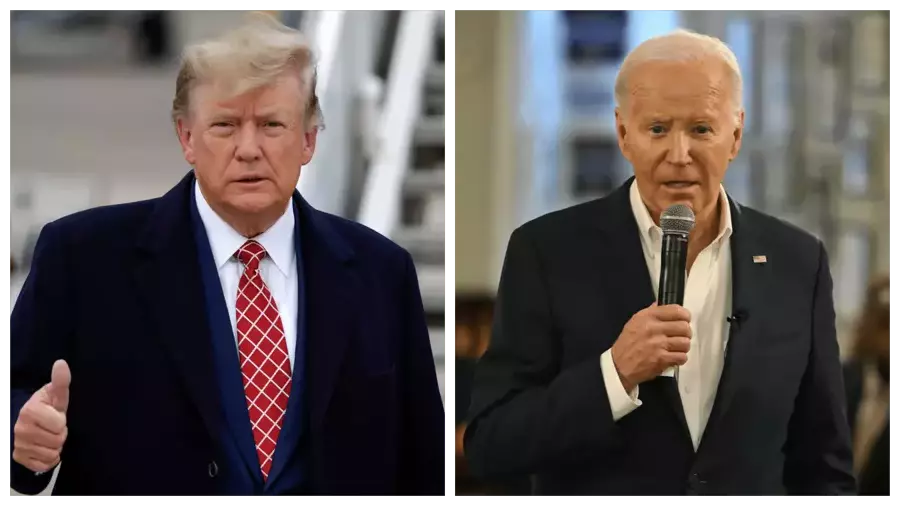Former President Donald Trump is currently leading President Joe Biden in Texas by twice his margin of victory four years ago, according to recent polls.

The survey conducted by Marist College reveals that Republican Sen.
Ted Cruz is also leading Democratic opponent Rep.
Colin Allred by six points in a crucial Senate contest.
This comes as the GOP looks to regain the majority in the chamber during November’s elections.
In 2020, Trump managed to narrowly defeat Biden in Texas with a margin of about 5.5 points, marking the closest victory for a Republican presidential candidate in the deeply red state in almost 25 years.
The recent Marist poll indicates that among registered voters, Trump leads his successor by 11 points (55%-44.
However, his advantage among those who say they will definitely vote in November’s election drops to just seven points (53%-46.
According to the Marist poll, Trump has increased his support considerably among Black and Latino voters, while Biden appears to have lost ground with younger voters.
In a significant shift from 2020 when Biden carried independents by six percentage points, Trump now enjoys the support of 56% of Texas’ independent voters compared to just 41% for his opponent.
In the crucial Senate contest, Cruz leads Allred 51% to 45% among registered voters, with a similar lead among likely voters.
Among independents, Cruz holds an eight-point advantage over Allred (50% – 42.
There is also a significant gender gap, with Cruz leading Allred by 21 percentage points among men (59% – 38%) and trailing by eight percentage points among women (Allred: 52%, Cruz: 44.
Despite the favorable polls for Trump, some leading Democrats have expressed concerns about the proposed debates between the two candidates.
Former House Speaker Nancy Pelosi, for instance, revealed her personal views on the matter, stating that she would never recommend going on stage with Donald Trump.
Instead, Pelosi suggested separate town hall meetings where the audience could challenge each candidate with questions about the future.
